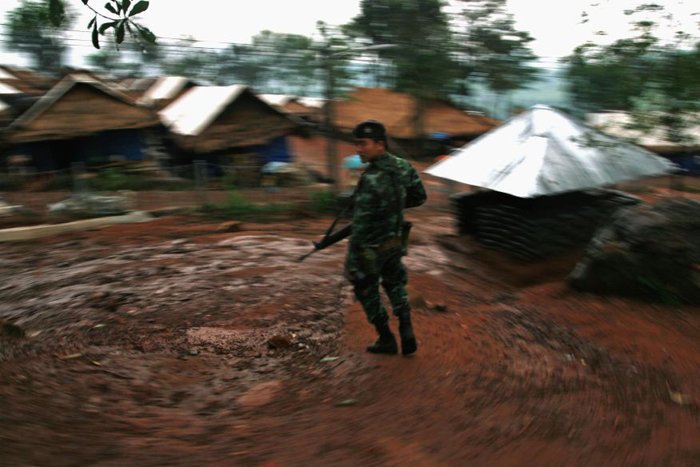When MSF Criticized the Forced Repatriation of Hmong to Laos

Thai authorities are expelling the 4,000 Hmong remaining in the Huai Nam Khao camp in Thailand's Petchabun province to Laos. No third-party organisation is present at the site. MSF, which left the camps in May 2009 following military pressure, had denounced the forced repatriation policy.
The expulsion of the 4,000 Hmong, who fled Laos to seek refuge in the Huai Nam Khao camp in Thailand, results from a bilateral agreement between the Laotian and Thai governments, signed in May 2007. The two had stated their intention to repatriate all Hmong to Laos before the end of 2009. The Thai government refuses to recognize the Hmong in the Huai Nam Khao camp as refugees; rather, it considers them illegal immigrants whose repatriation does not violate international law.
MSF was the only international humanitarian organisation in the camp as of July 2005. It criticized this situation on several occasions, calling for a halt to the forced repatriations, which accelerated in December 2008 with 200 expulsions occurring every month. MSF considered this population to be vulnerable and asked the Thai government to undertake a case-by-case review under the supervision of an independent, recognized third-party organisation such as the UN High Commission on Refugees (UNHCR). That organisation could have evaluated the legitimacy of the Hmong's concerns regarding their return to Laos, where they claimed they were persecuted, and considered their request for protection and refugee status.
According to international law, individuals who fear for their life or safety may not be repatriated by force. In addition, all repatriated individuals must have guarantees as to their safety. Neither of these conditions has been met for the refugees of Huai Nam Khao camp.
"We also hope that an international third-party organisation can evaluate the areas of return and the assistance offered to Laos," says Dr. Marie-Pierre ALLIÉ, president of Médecins Sans Frontières France. "These repatriations are taking place without any monitoring. As a result, the voluntary nature of the returns and the longer-term safety of the repatriated individuals cannot be verified."
Despite repeated requests, including from MSF and the UNHCR, the Thai government still refuses to undertake a case-by-case pre-repatriation review under the auspices of an independent organisation.
The Laotian government continues to prohibit non-governmental and international organisations from entering the areas in Laos where the Hmong are being repatriated.
After working in the camp for four years, Médecins Sans Frontières ended its activities there in May 2009 as a result of pressure from the Thai army against the Hmong, as well as of increased restrictions on MSF's work (access to treatment and food), which heightened pressure on the refugees to return to Laos.
MSF provided medical and sanitation assistance to Hmong refugees in the Petchabun camp between July 2005 and May 2009. Throughout that period, MSF was the only international organisation in the area in a position of speaking to the situation in the camp.





Leave a Comment